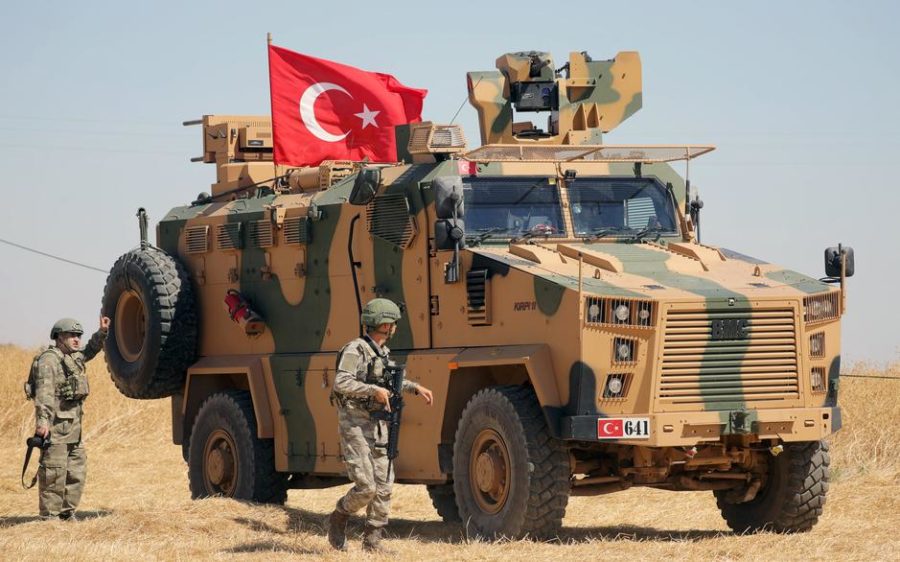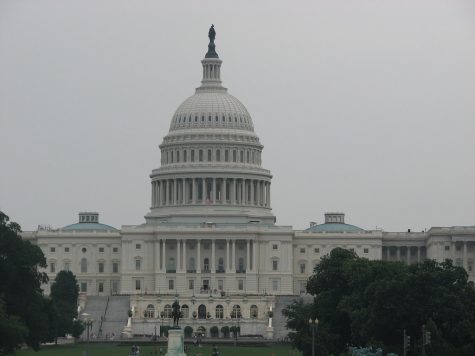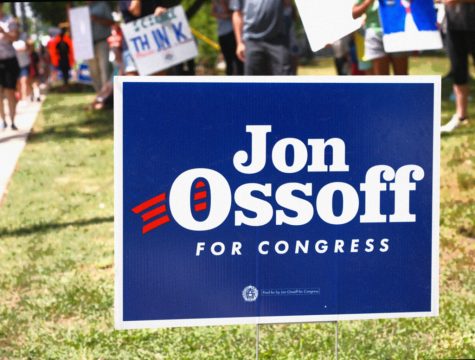U.S. and Allies Fear Ethnic Cleansing as Turkish Incursion on Kurdish Land Continues
November 3, 2019
Syria- On October 6th, President Trump had a phone call in which he stated that he would remove 1,000 American troops stationed near the Turkish-Syrian border. During which, Turkish President Recep Tayyip Erdogan launched a military campaign against one of Turkey’s long-standing opponents–the Kurds. While the Turkish government claims that they are invading Syria to create a buffer zone roughly 20 miles deep, the history between the Kurds and the Turkish government says otherwise.
The Kurds are the most significant ethnic minority in Syria (making up roughly 5-10% of the total population) and are the fourth largest ethnic minority in the greater Middle East. After the fall of the Ottoman Empire, the Kurds pushed for the creation of their state, but nothing ever materialized. In the ensuing decades, an insurgency led by the Kurdistan Workers Party (PKK) would lead to a decade’s long animosity between the Kurds and the Turkish government, which continues to impact the Turkish-Kurdish relationship. Today, the Turkish government continues to see the existence of an offshoot of the PKK, the Syrian Defense Forces, as a national security threat. Despite the SDF’s connection to the PKK, the SDF has become one of the United State’s most reliable allies in the region and has provided crucial information in the United States’ fight against the Islamic State of Iraq and Syria (ISIS). Since October 6th, the Kurds, who before the Turkish invasion controlled roughly a quarter of the Syrian landmass (all of which was taken back from ISIS fighters), have lost approximately 900 square miles to the Turks. The Turkish government’s recent military action, while being in open defiance of the wishes of NATO and the EU, has caused further destabilization in an already volatile region.
Given the tough choice of defending their land and families from the Turks on the front lines or guarding incarcerated ISIS fighters in Kurdish-run prisons, the Kurds have chosen to act on the former. This decision, however, has allowed for at least 1,000 ISIS fighters to escape and the potential for 10,000 more soldiers to avoid as well. As the death toll on the front line continues to rise, the Turkish incursion on Kurdish-held land has caused thousands of Kurds to flee. In the days after Turkey’s initial airstrike on Kurdish positions, President Trump, while explaining his decision to abandon the Kurds on a whim and cut off all monetary support to their militia, commented that the Kurds, “didn’t help us with Normandy.” While the United States has always made it clear that they would eventually remove their troops from the Turkish-Syrian border, the Obama administration promised when U.S. troops were removed from the region the U.S. would give the Kurds enough time to prepare for this change. This dramatic shift in American foreign policy, directed by President Trump, has led to the creation of a void in the Middle East that is rapidly being filled by the Russian government which seeks to expand their sphere of influence in the Middle East by aiding their newest ally, Turkey, and their long-standing ally, Syrian President Bashar al-Assad. Cementing their unique role in the Middle East after the sale of an anti-aircraft missile system to the Turkish government earlier this year, the Russians continue to prove their willingness to help their new allies and expand their presence in the region.
After Russian President Vladamir Putin met with Erdogan in Sochi, Russia last week, it was made clear to the world that both the Russians and the Turks would get something out of this alliance. For the Turks, the union would increase the chance of the establishment of a 20-mile deep buffer zone in northeastern Syria. For the Russians, the alliance would allow them to control Kurdish land with the Turks and to spread their sphere of influence in a region once dominated by the United States.
Despite putting a wedge between themselves and NATO allies, Turkey’s continued fight with the Kurds makes the world community fear that this conflict might soon become driven by ethnic cleansing. Contrary to what President Trump stated earlier this year, ISIS has not been defeated, and the recent military operation that resulted in the death of ISIS leader Abu Bakr al-Baghdadi is further proof that the Kurds are essential allies for the United States to have. Although the fate of the Kurds is unclear, one thing is for sure: the United States’ abandonment of the Kurds will have significant repercussions in the Middle East and the rest of the world.













